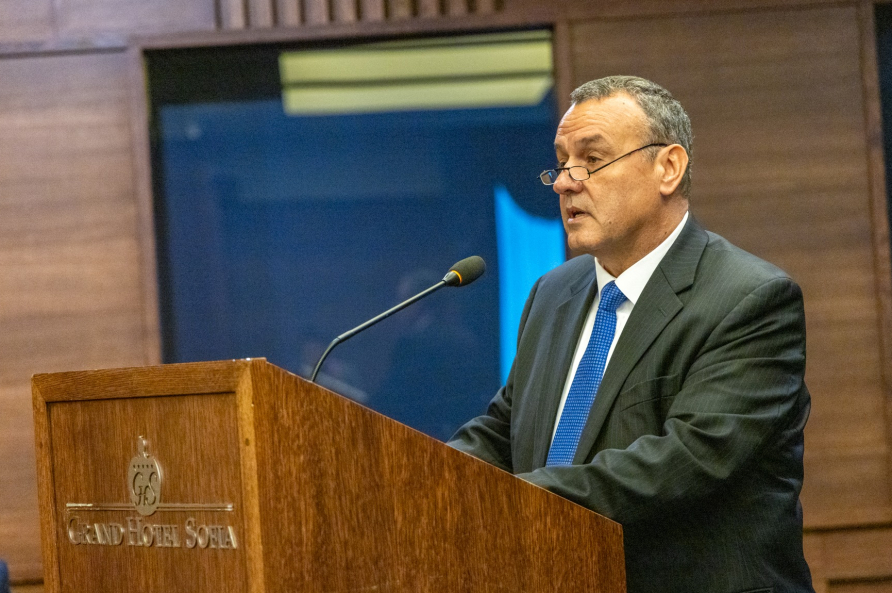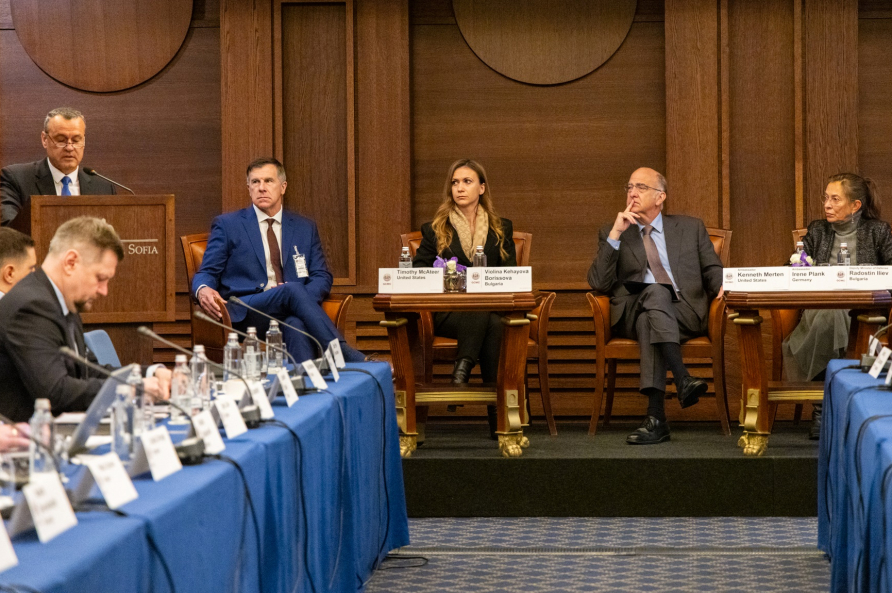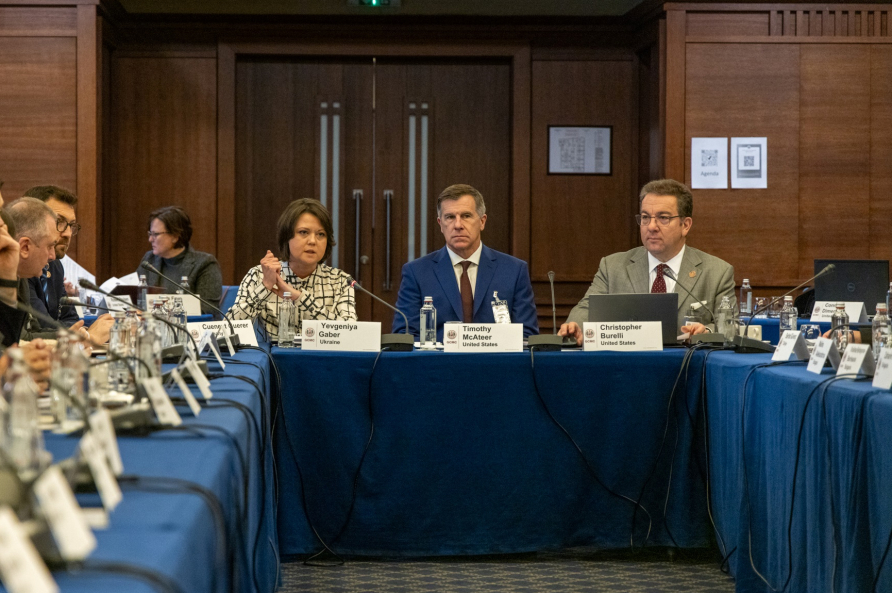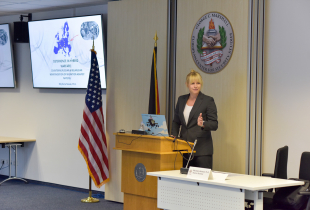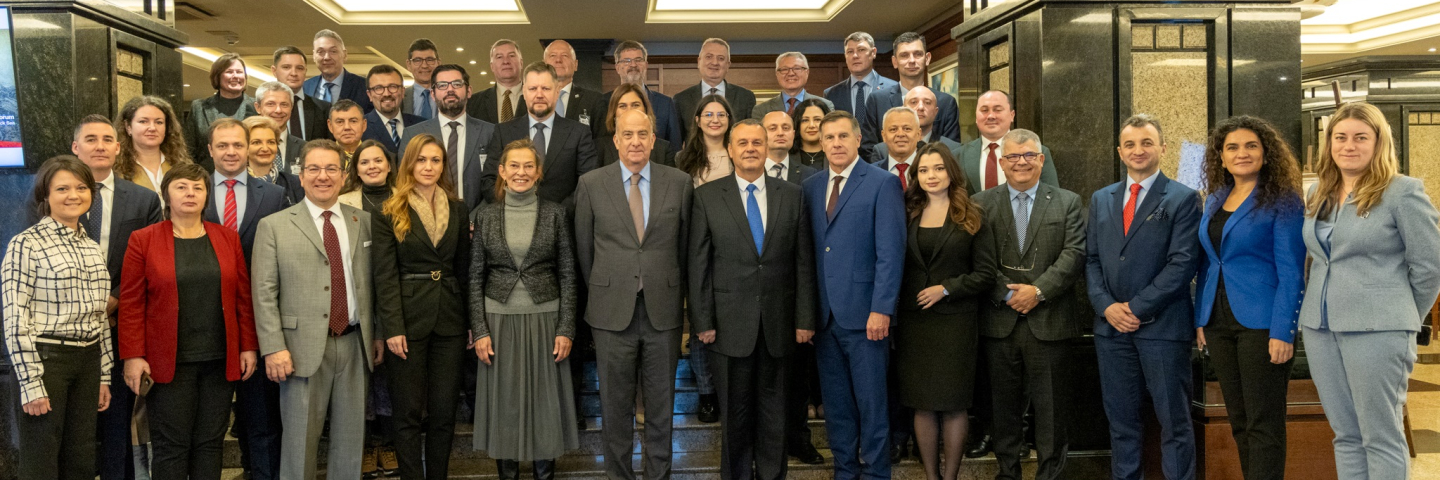
NATO Allies and Partners Focus on Defense and Deterrence Posture in the Black Sea Region
SOFIA, Bulgaria (November 12, 2024) – Marshall Center alumni, security experts, and government leaders gathered for the tenth annual Black Sea Regional Alumni Forum, hosted by the George C. Marshall European Center for Security Studies, to address the evolving security landscape in the Black Sea region. Participants from Bulgaria, Romania, Moldova, Türkiye, Ukraine, and Georgia brought a renewed focus on NATO’s defense and deterrence posture, particularly in light of Russia’s continued aggression toward Ukraine and rising hybrid threats.
"Russia’s unprovoked war against Ukraine has shattered the peace in Europe, posing the greatest security threat in decades," said U.S. Ambassador to Bulgaria Kenneth Merten during the opening session. "Our goal here is to ensure that NATO’s deterrence and defense posture remains credible and effective as we work to promote a secure and peaceful Black Sea region."
NATO’s defense posture is not only vital for the region’s security but also serves as a critical shield for countries like Bulgaria, keeping the war and its destabilizing effects at bay. Bulgaria’s Deputy Minister of Defense, Radostin Iliev, talked about how the tendency to change the international rules-based order through the use of force should also trigger increased defense initiatives.
Through NATO's robust deterrence capabilities, Bulgaria and other Allies benefit from the security umbrella that helps prevent further escalation of conflict. This deterrence ensures that NATO forces are prepared and unified, helping to maintain stability and foster more resilient democracies.
The conference brought together Marshall Center alumni and regional leaders to strengthen NATO’s response to Russian threats through enhanced collective security efforts. These efforts focus on NATO nations with naval assets in the Black Sea—Bulgaria, Romania, and Türkiye—as well as regional partners like Ukraine, Georgia, and Moldova.
"Unity is key to our defense efforts," emphasized Marshall Center Deputy Director Tim McAteer, underscoring the Alliance's enduring relevance. "NATO’s support for Ukraine and its assistance to Moldova highlight our commitment to regional stability, but persistent threats mean we must remain vigilant and united."
Recent NATO summits, including the 2023 Vilnius and 2024 Washington Summits, have underscored the Black Sea’s importance in NATO’s security strategy. Key outcomes include a focus on enhancing defense capabilities, expanding air, sea, and land force deployments, and developing comprehensive defense plans tailored to the region.
"The Black Sea is critical not only for NATO nations but also for global security and economic interests," noted German Ambassador Irene Plank, adding that any instability here can have far-reaching impacts.
Among the event's distinguished participants was also Ms. Violina Kehayova, Acting President of the Bulgarian Marshall Center Alumni Association, who emphasized the importance of strategic collaboration and the mutual benefits of NATO's deterrence-based security framework in the Black Sea region.
As NATO celebrates its 75th anniversary, the forum reflects on the ongoing partnerships and the region's growing contributions to the Alliance's goals. In the next three days, participants will work on developing policy recommendations that will further strengthen NATO’s defense, deter further aggression, and bolster democratic resilience in the Black Sea region.

